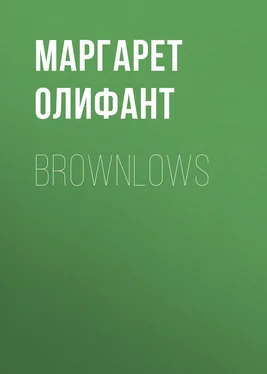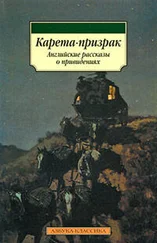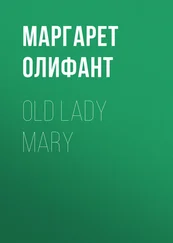Маргарет Олифант - Brownlows
Здесь есть возможность читать онлайн «Маргарет Олифант - Brownlows» — ознакомительный отрывок электронной книги совершенно бесплатно, а после прочтения отрывка купить полную версию. В некоторых случаях можно слушать аудио, скачать через торрент в формате fb2 и присутствует краткое содержание. Жанр: foreign_prose, literature_19, foreign_antique, на английском языке. Описание произведения, (предисловие) а так же отзывы посетителей доступны на портале библиотеки ЛибКат.
- Название:Brownlows
- Автор:
- Жанр:
- Год:неизвестен
- ISBN:нет данных
- Рейтинг книги:5 / 5. Голосов: 1
-
Избранное:Добавить в избранное
- Отзывы:
-
Ваша оценка:
- 100
- 1
- 2
- 3
- 4
- 5
Brownlows: краткое содержание, описание и аннотация
Предлагаем к чтению аннотацию, описание, краткое содержание или предисловие (зависит от того, что написал сам автор книги «Brownlows»). Если вы не нашли необходимую информацию о книге — напишите в комментариях, мы постараемся отыскать её.
Brownlows — читать онлайн ознакомительный отрывок
Ниже представлен текст книги, разбитый по страницам. Система сохранения места последней прочитанной страницы, позволяет с удобством читать онлайн бесплатно книгу «Brownlows», без необходимости каждый раз заново искать на чём Вы остановились. Поставьте закладку, и сможете в любой момент перейти на страницу, на которой закончили чтение.
Интервал:
Закладка:
In the mean time, however, he had to stoop to ordinary necessities and get into his carriage and be driven home, through the white gleaming country which shone under the moonlight, carrying with him a curious perception of how different it would have been had the house in High Street been home—had he had nothing more to do than to go up to the old drawing-room, his mother’s drawing-room, and find Sara there; and eat his dinner where his father had eaten his, instead of this long drive to the great country-house, which was so much more costly and magnificent than any thing his forefathers knew; but then his father, what would he have thought of this complication? What would he have advised, had it been any client of his; nay, what, if it was a client, would Mr. Brownlow himself advise? These thoughts kept turning over in his mind half against his will as he lay back in the corner of the carriage and saw the ghostly trees glimmer past in their coating of snow. He was very late, and Sara was anxious about him; nay, even Jack was anxious, and had come down to the park gates to look out for the carriage, and also to ask how the little invalid was at Mrs. Swayne’s. Jack, having this curiosity in his mind, did not pay much attention to his father’s looks; but Sara, with a girl’s quick perception, saw there was something unusual in his face; and with her usual rapidity she leaped to the conclusion that the bank must have broken or the railway gone wrong of which she had dreamed in the morning. Thus they all met at the table with a great deal on their minds; and this day, which I have recorded with painstaking minuteness, in order that there may be no future doubt as to its importance in the history, came to an end with outward placidity but much internal perturbation—at least came to an end as much as any day can be said to come to an end which rises upon an unsuspecting family big with undeveloped fate.
CHAPTER VIII.
YOUNG POWYS
Mr. Brownlow took his new clerk into his employment next morning. It is true that this was done to fill up a legitimate vacancy, but yet it took every body in the office a little by surprise. The junior clerk had generally been a very junior, taken in rather by way of training than for any positive use. The last one, indeed, whom this new-comer had been taken to replace, was an overgrown boy in jackets, very different, indeed, from the tall, well-developed Canadian whose appearance filled all Mr. Brownlow’s clerks with amazement. All sorts of conjectures about him filled the minds of these young gentlemen. They all spied some unknown motive underneath, and their guesses at it were ludicrously far from the real case. The conveyancing clerk suggested that the young fellow was somebody’s son “that old Brownlow has ruined, you know, in the way of business.” Other suppositions fixed on the fact that he was the son of a widow by whom, perhaps, the governor might have been bewitched, an idea which was speedily adopted as the favorite and most probable explanation, and caused unbounded amusement in the office. They made so merry over it that once or twice awkward consequences had nearly ensued; for the new clerk had quick ears, and was by no means destitute of intelligence, and decidedly more than a match, physically, for the most of his fellows. As for the circumstances of his engagement, they were on this wise.
At the hour which Mr. Brownlow had appointed to see him again, young Powys presented himself punctually in the outer office, where he was made to wait a little, and heard some “chaffing” about the governor’s singular proceedings on the previous day and his interviews with Inspector Pollaky, which probably conveyed a certain amount of information to the young man. When he was ushered into Mr. Brownlow’s room, there was, notwithstanding his frank and open countenance, a certain cloud on his brow. He stood stiffly before his future employer, and heard with only a half-satisfied look that the lawyer, having made inquiries, was disposed to take advantage of his services. To this the young backwoodsman assented in a stilted way, very different from his previous frankness; and when all was concluded, he still stood doubtful, with the look upon his face of having something to say.
“I don’t know what more there is to settle, except the time when you enter upon your duties,” said Mr. Brownlow, a little surprised. “You need not begin to-day. Mr. Wrinkell, the head-clerk, will give you all the necessary information about hours, and show you all you will have to do—Is there any thing more you would like to say?”
“Why, yes, sir,” said the youth abruptly, with a mixture of irritation and compunction. “Perhaps what I say may look very ungrateful; but—why did you send a policeman to my mother? That is not the way to inquire about a man if you mean to trust him. I don’t say you have any call to trust me—”
“A policeman!” said Mr. Brownlow, in consternation.
“Well, sir, the fellows there,” cried the energetic young savage, pointing behind him, “call him Inspector. I don’t mean to say you were to take me on my own word; any inquiries you liked to make we were ready to answer; but a policeman—and to my mother?”
Mr. Brownlow laughed, but yet this explosion gave him a certain uneasiness. “Compose yourself,” he said, “the man is not a policeman, but he is a confidential agent, whom when I can’t see about any thing myself—but I hope he did not say any thing or ask any thing that annoyed Mrs.—your mother,” Mr. Brownlow added, hurriedly; and if the jocular youths in the office had seen something like a shade of additional color rise on his elderly cheek, their amusement and their suspicions would have been equally confirmed.
“Well, no,” said young Powys, the compunction gaining ground; “I beg your pardon, sir; you are very kind. I am sure you must think me ungrateful—but—”
“Nonsense!” said Mr. Brownlow; “it is quite right you should stand up for your mother. The man is not a policeman—and I never—intended him—to trouble—your mother,” he added, with hesitation. “He went to make inquiry, and these sort of people take their own way; but he did not annoy her, I hope?”
“Oh, no!” said the youth, recovering his temper altogether. “She took it up as being some inquiry about my father, and she was a little excited, thinking perhaps that his friends—but never mind. I told her it was best we should depend only on ourselves, and I am sure I am right. Thank you; I shall have good news to tell her to-day.”
“Stop a little,” said Mr. Brownlow, feeling a reaction upon himself of the compunction which had passed over his young companion. “She thought it was something about your father? Is there any thing mysterious, then, about your father? I told you there was a Lady Powys who had lived here.”
“I don’t think there is any thing mysterious about him,” said the young man. “I scarcely remember him, though I am the eldest. He died quite young—and my poor mother has always thought that his friends—But I never encouraged her in that idea, for my part.”
“That his friends could do something for you?” said Mr. Brownlow.
“Yes, that is what she thought. I don’t think myself there is any foundation for it; and seeing they have never found us out all these years—five-and-twenty years—”
“Five-and-twenty years!” Mr. Brownlow repeated, with a start—not that the coincidence was any thing, but only that the mere sound of the word startled him, excited as he was.
“Yes, I am as old as that,” said young Powys, with a smile, and then he recollected himself. “I beg your pardon, sir; I am taking up your time, and I hope you don’t think I am ungrateful. Getting this situation so soon is every thing in the world to us.”
Читать дальшеИнтервал:
Закладка:
Похожие книги на «Brownlows»
Представляем Вашему вниманию похожие книги на «Brownlows» списком для выбора. Мы отобрали схожую по названию и смыслу литературу в надежде предоставить читателям больше вариантов отыскать новые, интересные, ещё непрочитанные произведения.
Обсуждение, отзывы о книге «Brownlows» и просто собственные мнения читателей. Оставьте ваши комментарии, напишите, что Вы думаете о произведении, его смысле или главных героях. Укажите что конкретно понравилось, а что нет, и почему Вы так считаете.












